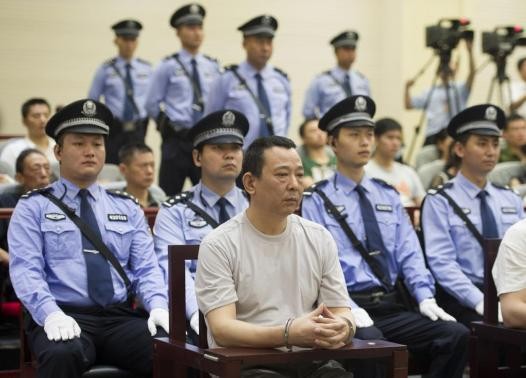In a rare piece of editorial journalism on Thursday, the Shanghai Daily's Liu Junyang shared a personal experience of being in the audience of a public execution.
Sometime in the 1970s, the writer was in a small city in China's northeast at a venue akin to an "open-air theater," with an audience gathered to view the shooting. The piece reads: "After the shooting, a group of medical personnel rushed in, moved the body to a medical van and sped away."
While Thursday's recount does not discuss what happened after the public shooting was enacted, or the reaction of the audience members, the description of a speeding-away medical van conveys the sense that those involved were in some way cognizant of the barbaric nature of the act.
Rather than celebrating the act or meditating on the significance of the ultimate punishment, the authorities insisted that the dead body was taken away without a moment's pause. The shooting was to be forgotten as quickly as the cessation of the convicted's heart when the bullets pierced the skin of the corresponding body.
According to Liu, an associate professor at the University of International Relations, the first Criminal Procedure Law banned public executions in 1980. This means that subsequent death sentences have been taken to their conclusion under governmental cover.
However, it seems that the shields of authority are being very gradually lowered, as two recent death-penalty reforms have been publicized: The National People's Congress (NPC) proposed the elimination of nine of the offenses that are punishable by death in November, while Beijing banned the harvesting of organs from executed prisoners.
According to the academic author, these reforms "demonstrate progress on human rights," and even though he concedes that it is "naive and unrealistic" to think that the death penalty right will be ceased in either China or the U.S., the very fact that the legislation is continually reviewed in the former provides hope for those opposed to the practice.
The mid-2014 words of U.N. Secretary-General Ban Ki-moon may be the most relevant at this point in time: "The death penalty has no place in the 21st century."



























